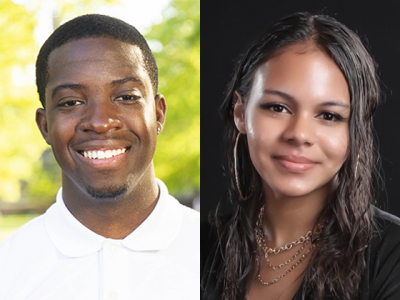Duke CS Students Make a Difference by Improving Systemic Inequities in Computing Education

AiiCE
The Alliance for Identity-Inclusive Computing Education (AiiCE) is a national partnership that aims to disrupt the norms that currently exist in computing education, while developing equitable environments for historically underrepresented groups.
Duke CS graduate student Jabari Kwesi and undergraduate student Kiara de Lande actively and creatively participate in AiiCE efforts to cultivate identity-inclusive environments within computing education.
Accomplishments
Affirming that he's privileged to work as an AiiCE student advisory board member, Jabari has contributed to developing Alliance tenets, advised an audience of over 100 computer science educators, faculty, and students, and conducted research to help understand undergraduate computing students’ perceptions of race.
Kiara is relatively new to the organization, and enjoys collaborating with AiiCE. She took the AiiCE Teaching Assistant Professional Development Course, and exercised the initiative to create inclusivity training for undergraduate TAs across Duke’s campus. She also participated in an interview and panel for the Computer Science Teachers Association (CSTA) conference about identity-inclusive computing education and its beneficial effects in K-12 schooling.
Future plans
Jabari: We’re invited to participate in a focus group that is recommending revisions to CSTA K-12 Standards and AP CS courses, while also clarifying alignment of and developing model pathways for CS courses. The student advisory board is also hosting a conversation on January 23, 2024 to speak on identity and inclusion in computing spaces.
Kiara plans to host an open house during the spring semester for CS majors at Duke to discuss being a minority in a field like CS and to seek ways to support CS students in collegiate fields.
United by AiiCE's shared vision, both Jabari and Kiara are committed to trailblazing and supporting this important, valuable work of increasing justice, equity, diversity, and inclusion in computing. They're excited to make a difference in improving systemic inequities and inequalities for current and future generations of computer science students.




